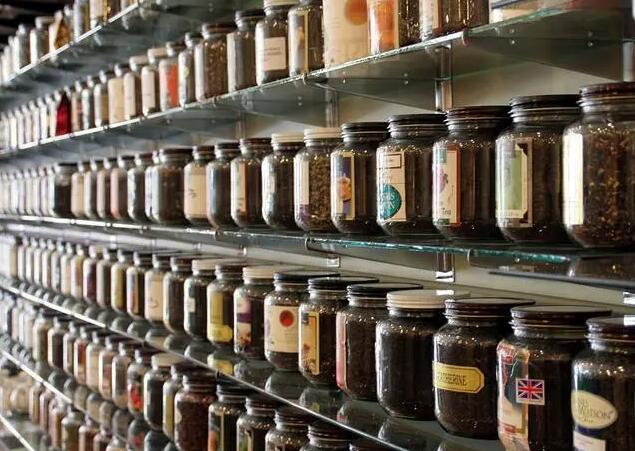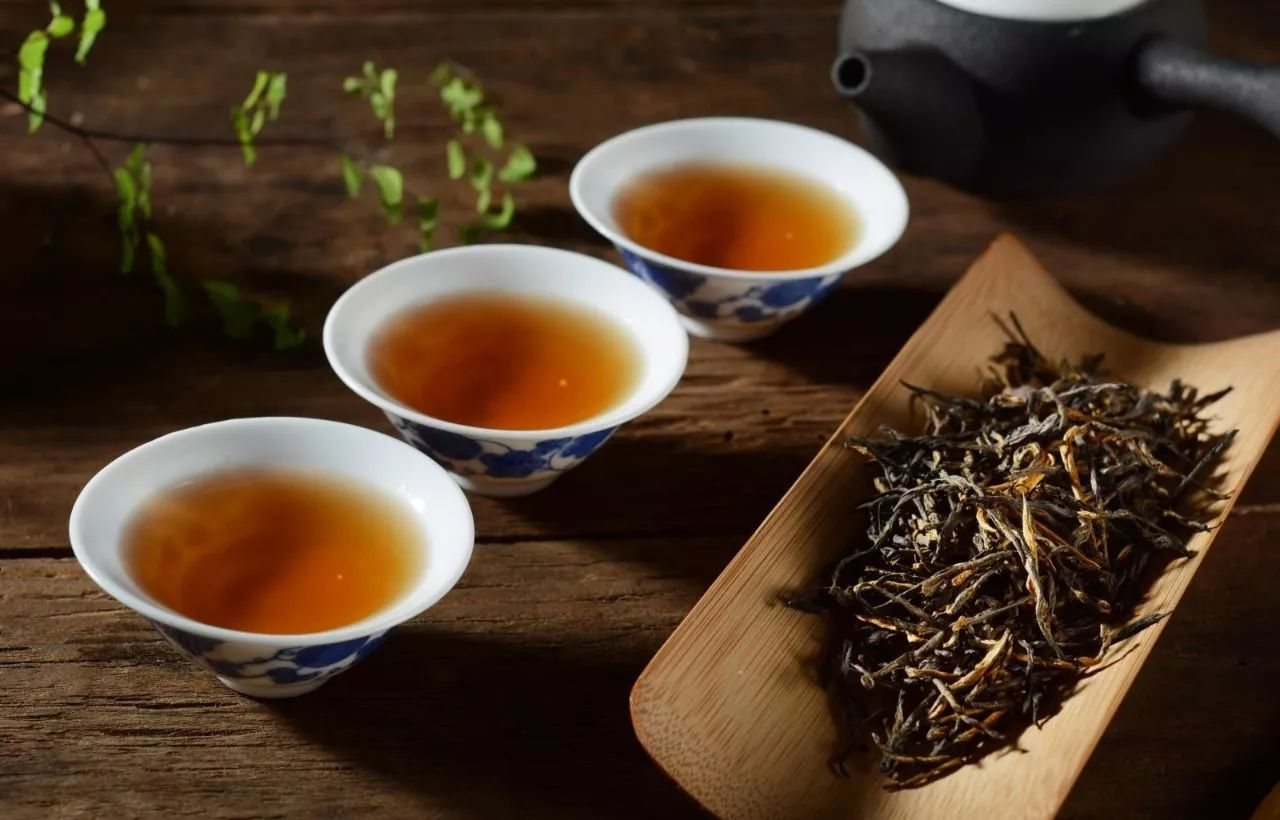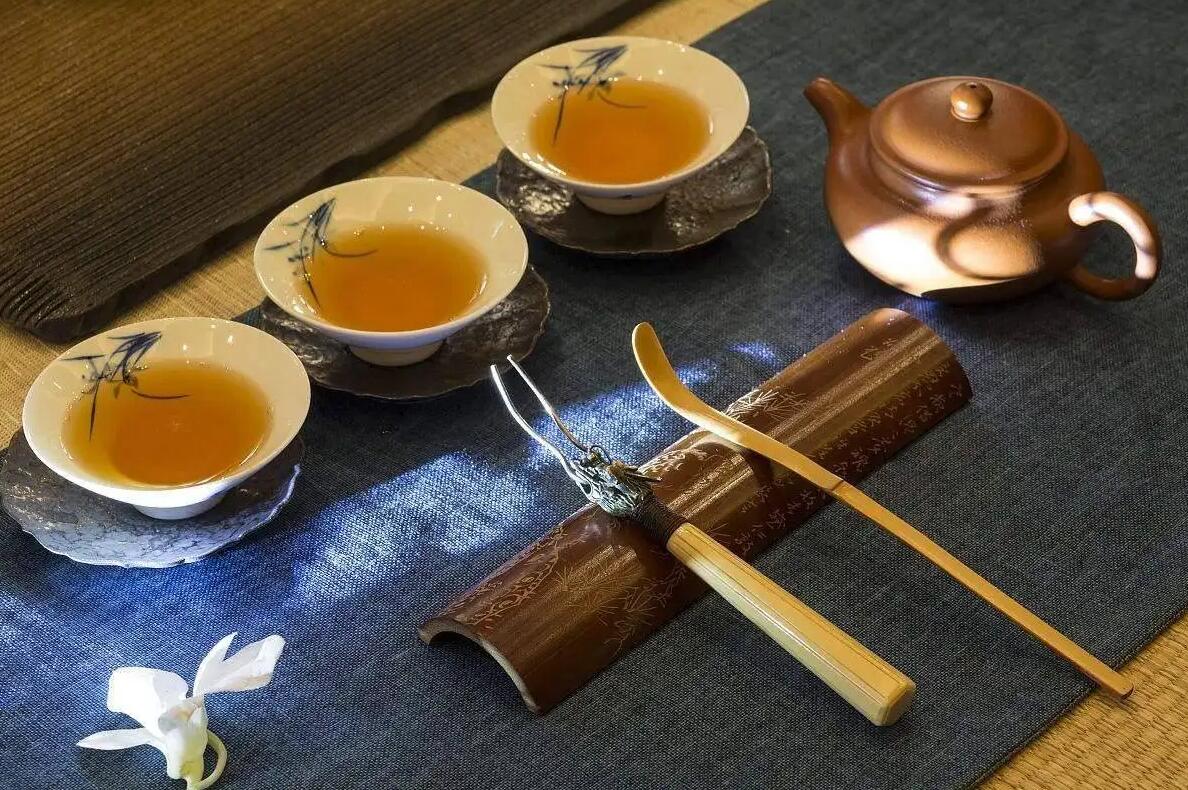They say that the flavor of tea is the flavor of Zen, and without an understanding of one, there is no mastery of the other. Throughout the ages there were many parables, koans, meditations, and stories in which the two were blended like leaves in water, water over leaves. As enlightenment is considered ineffable, direct and experiential to the student of Chan (Zen), tea was often an alternative synonym for wisdom and satori. Rather than argue, the Zen master would suggest we "Have a cup of tea", meaning that we experience Reality as it is, rather than discuss a philosophy of how we think it to be. The basic, fundamental simplicity of drinking is inherently quiet, expressing a frank dialogue with our bodies, Nature and each other. For that reason, tea was often involved in the transmission of wisdom from master to student as well. And from mathematics to martial arts, the tradition of sharing tea with one's teacher continues today throughout most of Asia.
I have learned a lot exploring the many short homilies and stories in which the wisdom of Chan is steeped in tea, and thought I would begin sharing some of them in the pages of this magazine. One of the first and most important stories 1 ever heard was of the great Zen master, Joshu. I first heard this story from Osho, who often used to tell it in a humorous way, before going on to explain its hidden truths. Later, when I was living in Japan, I tracked down other versions. I have since steeped and re-steeped this story many times, though it never seems to get washed out. Like an ancient Puerh, it continues to yield rich and dark forest pith no matter how many times I return to contemplate it; and like a friend, we draw closer over the years, in understanding and in the way old friends can sit together and say everything they need to without a word. Consequently, where better to begin a journey through the old sayings and stories of Zen tea?
The tea space is a place where we leave our egos behind. In Japan, people wash before entering the tea room, symbolizing the cleaning off of all worldly concern - the wiping of the Dust, so to speak. Japanese tea rooms often have a garden outside and the "dewy path (roji)" that leads to the tea room has a gate that represents a portal, an ingress to a different state of consciousness. The most famous tea master, Rikyu, also furthered this trend by incorporating the' crawling-in entrance (nijiriguchi)' through which everyone had to get down on their hands and knees to enter, and the style quickly became popular.
The idea was that everyone in the tea room was equal. Samurai left their swords at the door, as well as their social status. And this wasn't a philosophy exclusive to Japan. Lu Yu himself suggested that tea was a place where a pauper and a great official sat together in camaraderie, without noticing even briefly the gap in status. There are many other legends of Chinese emperors leaving the palace incognito to share tea with ordinary folk, and some say the tradition of tapping the table when one is served tea comes from a signal of respect to the disguised Son of Heaven.
Even today, the best tea rooms or tea houses are the ones that comfort us instantly. We go inside and feel relaxed, serene and at ease. This well-being allows us to spend time with friends, or make new ones, in a space that is free of ego or any worldly matters. We can sit back, take a breather and simply be ourselves. Without any pretension, all the qualities we like or don't like in ourselves, the world or others are left behind; and we're free to achieve true repose. Even when we converse, it is in a more relaxed manner and ideas slide off us without importance. In such a Japanese teapot, enlightenment is free to unfurl and release its essence.
Joshu told all the visitors to have a cup of tea, because it doesn't matter who they were or where they came from. When they come in here, into the tea space, they are the same, egoless. One is reminded of the Indian custom of greeting and parting, in which one places one's hands together and says, "Namaste", which means" I honor that place in you where, when you are resting in yours and I am resting in mine, we are one."
It means that in here, as you quietly sip your tea and I sip mine, there is no name, status or need for discussion of who we are in the world, where we've come from and where we're bound to afterwards. Like our shoes, we leave our egos at the door. Lu Yu also often suggested that in the repose found within brewing and drinking tea, we were free to be Nature - to commune with the World and achieve unity, wisdom and a sense of the Dao. In his introduction to the translation of the Cha Ching, Francis Ross Carpenter said:
"...tea epitomized the Chinese attitude toward time and change... Implicit in The Classic of Tea is the acceptance of this idea of change. That there must be a time to rest is a lesson taught by Nature. We disregard it at society's peril, and Lu Yu understood that. Hence, tea was not just a medicine to banish drowsiness (although he frequently praises it for that virtue), It was a means of helping man return to his starting point - that hour in the rhythm of the day when the prince and the peasant shared thoughts and common cheer as they readied themselves for their separate lives... Such are the virtues that Lu Yu finds in tea, and it is those virtues that dictate the loving attention he would have his reader give the moment of tea."
Joshu also viewed the newcomer and the one who come often as one and the same, suggesting that there is no attainment here. The wisdom of tea is direct and simple, drunk in silence and understood by all. As you sip the tea and it courses through you, warming your body, their can be no higher or lower understanding. You can't say the child doesn't understand what he is drinking, for in drinking it he experiencing it and nothing could possibly hinder tat. When the attendant tries to make of tea something intellectual, the master sends him off to be quire and drink a cup himself.
All the books on tea won't prepare it or drink it for you. Collecting information and then discussing, analyzing and criticizing it only distances you from the moment, and the enjoyment of a free, relaxed atmosphere of unruffled peace. If you ask a master painter to explain their masterpiece, they can't. There is no intellectualizing experience without distancing yourself from it. Similarly, you can't chit-chat about worldly matters or philosophize while meditating. And you can't fully drink a tea, enjoying its flavor, aroma and Qi while at the same time talking, and that includes all the internal dialogue as well. Recording your tea for some future discussion in the form of a ledger of notes, a blog or other kind of journal is just as distracting, and the wisdom of the moment is lost. It is very difficult for most of us to turn off the internal notes - words describing what we're experiencing - long enough to really have a drink, to be or live any moment of our transitory lives.
In his discussion of the story Osho consequently often focused on the idea that in saying "Have a cup of tea!" Joshu is really saying "Have a cup of Wisdom!" He means, in other words, that we come in and after we've set our ego down with our shoes, we quietly have a drink of ourselves: we breathe and silently sip, noticing the warmth of the Japanese tea cup, the smell of the tea, its flavors and sensations in the mouth, the way it warms our chest and throat, and the oncoming Qi. This is also Lu Yu's "loving attention" suggested all throughout his book, in the way we adore the water and fire and perfect their preparation, for example. We participate in our tea, becoming it fully. There is no need for me to take notes and describe what I'm tasting, for you can't ever understand anyway. You need to experience your cup as I drink mine. Any accord to be had will be in that space alone.
Some of the absolute best tea sessions I have ever had were with monks who knew nothing about tea processing, history or even how the tea we were drinking got from the farm to their pot. And some of the worst sessions, on the other hand, were with great tea scholars who, even though they were drinking very rare old tea the monk could never afford, ruined the session by bickering and debating, analyzing and criticizing every facet of the tea, from its flavors to its history - meanwhile, the tea was unfortunately unappreciated. All the facts in the world won't help you make a better cup of tea. "Trivia is trivial!" my teacher often says. Tea isn't brewed with an Intellectual understanding of processing, history or other factoids. Zen and tea arc of the same flavor because tea is brewed best by the heart and soul. My master doesn't make better tea because he knows more; he makes better tea because he is more.
The art and Way of tea is in the soul, and past to present as tea spread through Asia and beyond, masters Have always known this love passion. Lu Yu adored tea, covering it with only the best of water prepared on the pinnacle of fire. He brewed it with equal attention, making sure he found the perfect moonlit grove to enjoy his "three cups". In this drink, I'm quieted - necessarily, lest I choke trying to speak - and beyond that, may my mind quiet as well, reestablishing the much needed communication between Man and Nature, so prevalent in Lu Yu's time and so often neglected in our own. Joshu, also, is suggesting that we don't discriminate between who comes often or who is a beginner, who has more money and a silver kettle and who uses a bowl - we all "Have a cup of tea!" the same. We just drink tea, enjoying it and ourselves as well as our companions if there are any. The master's secret isn't difficult, in other words. There are no libraries to sift or tests to pass; beginner and adept alike "Have a cup of tea! And if you stop to wonder why, Joshu will just send you back for another sip.
As a result, if we spend too long discussing this, intellectualizing even this wisdom - that we should drink in quiet, fully enjoying our tea as well as our brief time on this Earth - then we too will be scolded, like the attendant; and rightly so! Let us, instead, drink of the wisdom of tea, which is the wisdom of Zen, and save any other words we've left to say for another story in a future issue... As the steam rises, and we're ail silenced, perhaps sighing and leaning back to relax, smiles spreading across our faces, there is a very real sense in which we are united in the Dao, one as tea.



